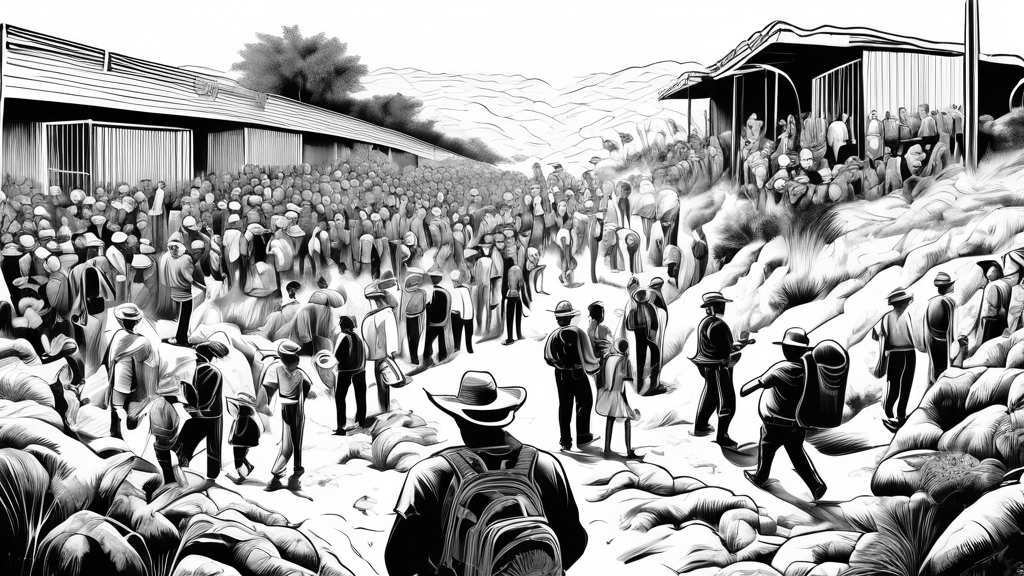
Complexity at the Southern Border
The ongoing debates on illegal immigration and border security highlight the complex nature of policy-making in this sphere. As of October 2024, new developments in the U.S. have surfaced, both reinforcing and challenging current measures. Vice President Kamala Harris pioneers dialogues underscoring her efforts as California’s attorney general to combat transnational crime. Her experience in dismantling criminal organizations through collaboration with federal and international authorities paints a picture of a tightly coordinated enforcement strategy.
Divergent Political Narratives
The recent presidential debate threw light on the distinct approaches by Joe Biden and Donald Trump, with immigration as a focal point. President Biden defended the strides made under his administration in curbing illegal crossings, emphasizing a downtrend resulting from executive maneuvers. Conversely, former President Trump accused Biden of covertly supporting open borders, attributing rising criminal activities to perceived laxities. This political tug-of-war starkly illustrates the broader ideological divides shaping immigration rhetoric in the U.S.
Trump’s campaign spices the immigration debate with both fervor and dualism, championing his stringent veto against immigrants he aligns with illegal activities, while seeking to inspire Latino communities by recognizing their dynamism. This dual strategy aims to consolidate a broad voter base despite the contrasting narratives it propagates.
Impact of Policies and New Measures
The impact of the policies set in mid-2024, particularly the presidential proclamations restricting asylum seekers, marks a significant turn in the immigration tide. Statistics from June 2024 reveal a 29% decline in border encounters, and further scrutinizing these figures unveils decreases across different migrant categories. Particularly, families have seen a 36% drop, hinting at the tangible effects of the tightened policy measures.
The June 2024 rule restricting asylum processes stipulates eligibility based on stringent criteria, reinforcing the immediate enforcement of expedited removals. As Mexico also intensified its control on migratory flows, the border’s momentum cooled to its lowest since 2020. However, by August 2024, a tentative uptick in apprehensions suggested a possible plateau of the deterrent effects.
Security and Humanitarian Concerns
As the Biden administration moves towards ramping up border security, implementing rigorous screening to halt gang influence and criminal infiltrations is paramount. Nevertheless, alongside security triumphs follow persistent humanitarian concerns. Reports of escalating migrant fatalities and kidnappings by criminal networks underscore the grim realities tied to perilous migration attempts.
Adding a layer of complexity, legal contests emerge against the Biden administration’s restrictive measures, with courts evaluating the legitimacy and ramifications of current immigration rules. Funding appropriated for border barrier development pivots, caught in legal limbo amid injunctions blocking reallocation attempts, thereby embroiling the administration amidst policy turbulence.
The numerous angles defining the current state of immigration in the U.S. reflect not just policy, but a transformation in which international collaboration, enforcement, and humanitarianism converge. The intricacies involved necessitate ongoing dialogues aimed at achieving a balanced approach that addresses security imperatives while being cognizant of human rights and legal obligations.
